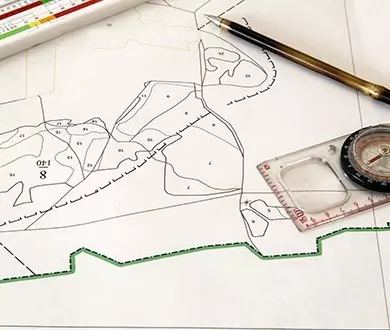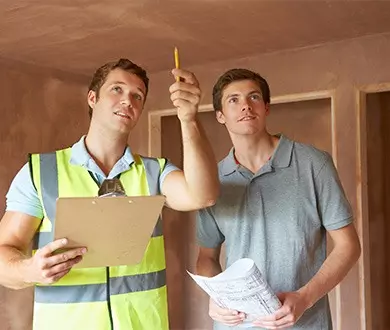What is Boundary Dispute Mediation?
You may currently get on well with your neighbour, but all this can change once a boundary dispute arises. Disagreeing on where the boundary line lies or who should maintain which part of the boundary has led to many neighbourly disputes. What makes it worse is that what is on the title deed may not always match what is on the ground.
However, the law makes some presumptions in boundary dispute cases if physical features such as rivers and roads help distinguish the boundary line.
The downside of boundary disputes is the bitterness it breeds between neighbours as well as the length of time it takes. If you decide to hire a solicitor, it can cause a huge financial strain because the fees soon mount up. It can be frustrating to spend thousands and yet no closer to tackling the practical cause of the dispute.

During a mediation and experienced surveyor can use this expert information to bring agreement to difficult proceedings. The mediator will address the concerns of both parties to provide a fair resolution.
A chartered valuation surveyor can value your land as it stands, then revalue it assuming that you will reclaim the land in dispute. The value of the disputed property is the difference between the two valuations. Still, the surveyor will conduct the two assessments in your neighbour's land.
The bottom line is that ownership of disputed land should neither affect your property value nor your neighbour's property value. Residential property disputes can often be solved using these mediation methods and avoid engaging with solicitors or the court.
What happens if neighbours cannot resolve amicably?
Of course, if you are at loggerheads with your neighbour already, then suggesting resolving boundary disputes amicably is not likely to happen. However, that does not mean you wait for your neighbour to calm down until you are in friendly terms. You have a variety of resolution methods from which you can choose to settle the dispute as soon as possible.
You and your neighbour must agree on the method chosen and also on the results it will bring. As much as you want to resolve the dispute quickly, you cannot be selfish and have your preferred method as the only one to consider. You must give your neighbour a chance to explore their options, no matter how bad you think this result may be.
Once you and your neighbour agree on a resolution method, you can evaluate the possibility of the outcomes and be ready to accept them.

How to solve property disputes with a mediator
When assisting with boundary dispute resolution, a mediator will facilitate negotiations between all parties involved to help find a resolution that can be agreed upon.
As an expert in property law their role will be to find a solution to the dispute without having any decision-making powers.
When a settlement is agreed on, the result will be legally binding for all parties. The legal advice of the mediation expert will meet the claims of all involved in the neighbour disputes. As clients of the surveyor, you should expect the services provided to support the rights of both parties and explore all issues from both sides of the disagreement.
When mediating a boundary dispute, the facilitator should have a background in property law. This helps discussions to be based on what is agreeable to both parties as well as what is appropriate within the law.
Although a mediation will not be able to determine the true boundary position, an agreement can be reached that is beneficial to all parties.
The focus of a mediation is to move the discussion forward and not to allow any person in the dispute to continue to vent their grievances. The process calls on the experience of the facilitator to address private and personal concerns of all involved.
Get in touch with our RICS chartered surveyor today to discuss boundary dispute resolution.
